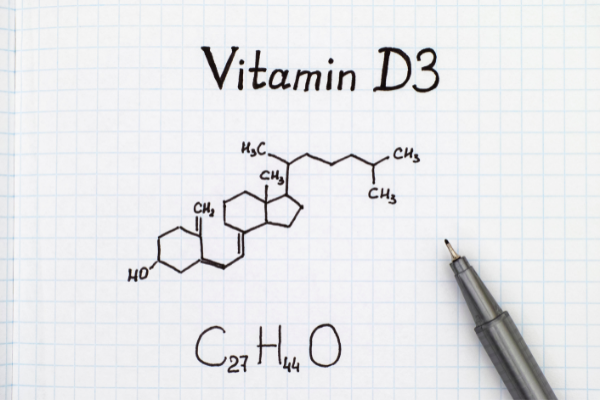“Vitamin D deficiency is associated with adverse health outcomes”[1]. Regardless of the disease or condition being studied, this phrase is one of the most common where vitamins/supplements are mentioned as a potential factor. The deficiency is associated with: the recent Pandemic, Colds/Flu, Depression, Osteoporosis, Heart Attack, Stroke, some forms of Cancer, Hypertension, Diabetes (possibly Type 1 and 2), Dental Health, General Immunity[2][3][4][5].
It’s important to realize that the deficiency alone may not be the cause, but it’s a fact that it exists. This doesn’t tell us exactly what to do, but it definitely tells us what not to do: Don’t let your Vitamin D levels get too low. What’s too low? The generally accepted healthy range is between 50 nmol/L to 75 nmol/L. If you don’t know your current levels, you really need to check with your doctor to find out where you’re at before supplementing. But odds are, if you’re not out in the sun most of the day, and/or you’re over 40, you are probably below 50 nmol/L. When we’re young and in good health, our bodies’ have the ability to make that Vitamin D and then shut it off when we have enough, but we don’t have the same ability to shut it off with supplements, so it’s important to monitor those levels.
“Vitamin D is frequently prescribed as a supplement, yet its absorption remains poorly understood[6].” This is the opening statement from a study published by the National Library of Medicine in January of 2018, and it’s extremely important because most people have never heard that Fat Soluble substances need to be taken with Fat for proper absorption! Without the fat source to attach to, absorption can be as low as 15-25%.
Among the many vital roles of Vitamin D, is the fact that the body also needs it to absorb Calcium[7]. We’ve already discussed Calcium, so I’ll spare you that, but the point we keep coming back to, is that some supplements need to be taken in proportional ranges to be effective, AND, to keep them from doing harm (think Calcium and K2).
Conclusion:
Once a disease or condition has set in, some can be improved by supplementing with Vitamin D, but many cannot. So, it’s important to recognize that keeping Vitamin D levels in the healthy range is one of the most important proactive things you can do for your immune system. Ideally, we’d get most of that Vitamin D from daily sunlight exposure, but that source is less effective as we age. And aside from some types of fish or fortified foods, supplementation eventually becomes necessary.
[1] https://pubmed.ncbi.nlm.nih.gov/20556359/
[2] https://pubmed.ncbi.nlm.nih.gov/32587562/
[3] https://pubmed.ncbi.nlm.nih.gov/32587562/
[4] https://www.ncbi.nlm.nih.gov/pmc/articles/PMC5541280/
[5] https://pubmed.ncbi.nlm.nih.gov/31405892/
[6] https://pubmed.ncbi.nlm.nih.gov/29025082/
[7] https://www.bones.nih.gov/health-info/bone/bone-health/nutrition/calcium-and-vitamin-d-important-every-age

